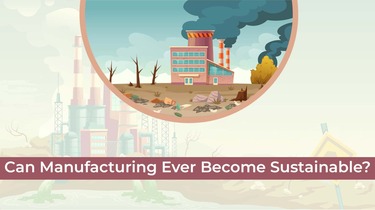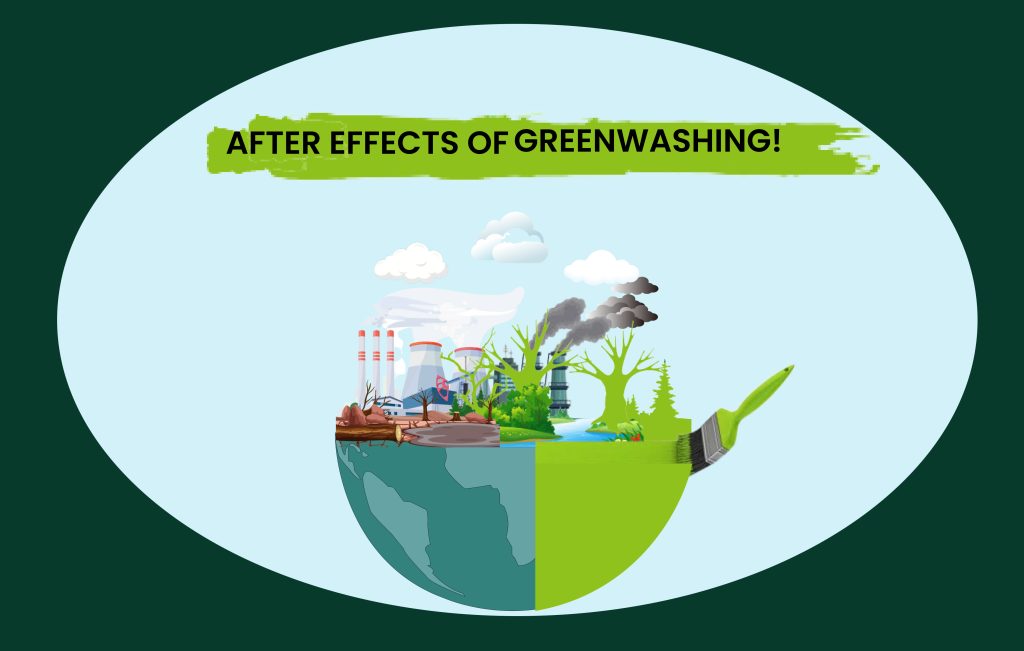
With the development span, efficient resources have been produced to ease the path of striving for a comfortable life. Daily products we use are a result of extensive industries expanded in miles. From a toothbrush to the last cookie you had before bed is produced in extensive industries. Industries are leading the production task yet leaving a piece of baggage full of consequences behind. Industries are conditioned to formulate in a cost-effective and higher production way, leading them to neglect environmental factors of concern.
What does sustainable manufacturing mean?
It is a reliant approach of adapting or implementing certain modifications to make the process of manufacturing less harmful to the environment. With sustainability being involved, a prominent manufacturing approach would minimize waste and pollution that’d affect the quality of air and surrounding. Sustainability reflects a convenient approach to the consumption of limited resources in a manner that wouldn’t affect the quality of life for future generations.
“Sustainability manufacturing is a system that integrates product and process design issues of manufacturing, planning, and control to identify, quantify, assess and manage the flow of environmental waste so that the goal of reducing environmental impact could lead up to the self-recovery of our planet.”
Certain types of sustainable approaches minimize the harmful effects of manufacturing. Firstly, energy use reduction emphasizes adopting measures that would diminish the level of unnecessary energy used during the production or manufacturing process. The water use reduction approach emphasizes efficiently limiting water use during the manufacturing process and avoiding dumping industrial wastes into public water bodies. Furthermore, emission reduction reflects the approaches and techniques that industries should adopt to minimize the level of emissions generated during manufacturing. Lastly, waste generation reduction emphasizes lessening the percentage of waste generation and adapting the eco-friendly approach to eliminate disposable waste.
In today’s era, most industries are capital intensive, which reflects that use of extensive machinery and depending on technology advancements would incur the process of manufacturing. Labor-intensive approaches have been denied, and every successfully running industry has adapted capital-intensive approaches. The manufacturing industries have been an essential contributor to the US economy, and a share of more than $3,334.00 is counted from the manufacturing and production industries.
Environment, Social and Governance (ESG) and Greenwashing
Every prevailing industry identifies itself as sustainable and eco-friendly nowadays. Even after disposing tons of waste into the environment, industries recognize themselves as sustainable. This tactic reflects an industry’s hypocritical approach while introducing themselves to their respective stakeholders. This passive neglect has gaslighted the audience’s delusional ideas about certain products. Consumers do expect each to stay truthful and loyal towards service providing pact. Also, ESG reports stand for environment, social and organizational governance. This document reflects on the brighter acts of an industry. With this report, an industry claims themselves being compliant with the suggestive environmental, social, and legal norms.

What is Greenwashing?
When a company or industry makes false claims about being compliant with suggestive ESG norms and regulations and carries on to sell their products would be identified as greenwashing as they’re just covering up the damage their manufacturing process is creating under the code of ESG reports. The phenomenon of greenwashing is deceiving and could lead consumers to fall for false promises and claims. To trace such greenwashed products, consumers have to stay attentive to the content and research about the contents whether they’re good for one’s health or environment or not. Setting out personal limits and parameters would help consumers stay limited with inclinations in specific products. Look for the easily used keywords by industries to promote their product, such as “eco-friendly’ or’ sustainable’. Look for the certified claims in the packaging of the products or on their websites, such as HACCP certification for the food, cosmetic or pharmaceutical-based industry or FSSSI certificate for food safety. The most known example of greenwashing phenomenon would be the Volkswagen Emission Scandal. In this scandal, Volkswagen, as the automobile industry, falsely claimed to have gone through certain emission testing, which resulted in a huge backlash and financial uncertainty. This scandal impacted its reputation and the marketplace of Volkswagen. Like Volkswagen, Nestle has also landed into trouble multiple times for false claims, and their products are always under the radar of questioning. Major brands like Coca-Cola, McDonald’s, Burger King, and Kohl’s were once counted in for greenwashing in terms of marketing, and they make their products look appealing by keeping well-known facts silent. Greenwashing did affect the brand’s social image and legitimacy too.
Relevance of Sustainable Manufacturing
In today’s time, the sustainable manufacturing system is a fancy word for the industries to look compliant and updated with recent trends. Certain industries do end up hoaxing their consumers into believing false claims. Sustainable manufacturing companies like Intel and Tesla have passed the test of efficiently being able to impact the environment in fewer ways and providing reliable services. Sustainable manufacturing industry would believe in production while keeping the environmental hazard parameters above and shifting the production parameters to modulate the effect on the environment. Sustainable fashion manufacturing is promoted and practiced by Zara, a renowned fashion brand that claims to be extracting raw materials that wouldn’t negatively affect the environment.
Talking about the need and urgency behind adapting the sustainable manufacturing measures is quite a need hour due to the following reasons:
Industrial waste is the key reason behind increasing global warming and pollution level, which affects the sanitation and health status of the overall population.
Earth is almost out of the water, and industrial waste dumping into water bodies leaves an impact.
Following are the suggestive sustainable manufacturing practices industries can adapt:
Industries should switch to eco-friendly substitutes for packing and try to eliminate the use of plastic-based packings. This initiative would help brands to look appealing to their respective consumers.
Industries should seek out better resorts to dispose of industrial wastes or look for innovative resorts to bring waste into use. This tactic would increase the productivity and efficiency of the industry.
Food-based industries should stay transparent and updated with all their food safety-based certifications to build a good image for their stakeholders and establish themselves as a sustainable food manufacturing brands. Food-based industries and fashion, automobile, or other industries should also stay transparent and updated with their respective required certifications.
Adapting eco-friendly substitutes would also help decrease the impact of carbon footprint in general.
Which countries have the most sustainable manufacturing companies?
Sweden, Switzerland, Norway, Japan, and Finland are the top 5 countries with sustainable manufacturing system-oriented industries working to make the world a good place to strive in. Bhutan is a country with an almost negative carbon footprint.
To conclude what has been mentioned above, sustainable manufacturing systems do help industries to formulate while keeping environmental conditions in mind. A Series of forest fires, earthquakes, and other calamities has already affected the earth and its remaining resources. The effects of cutting by the industrial and manufacturing sectors would help the planet restore its lost charm.




